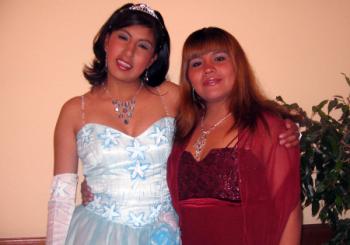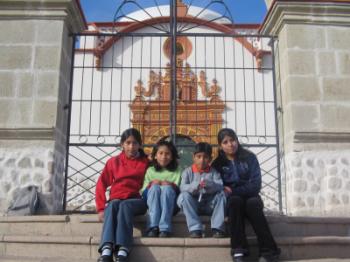High levels of poverty and unemployment

PotosÃ, capital of the department of the same name, is situated in the Bolivian highlands about 4,000 meters above sea level and has a population of 241,000. The climate of this highlands region is decidedly cold and the economy has always been based on mining. Because raw material prices were on the decline for many years, lots of mines closed down. This gave rise to high levels of unemployment and poverty in this predominantly indigenous region. Begging children and child labour are a common part of everyday life in PotosÃ.
Many leave Bolivia´s poorest region, and those who stay urgently need support
At 50 per cent, the level of extreme poverty in Potosà is more than three times the national average. This means that half of the population here cannot meet basic needs such as nutrition, sanitation and adequate housing. PotosÃ’s population is decreasing – many go to Santa Cruz or other central areas in search of work and improved living conditions.
The heavy mining activities in the region have also led to severe pollution of rivers, and clean drinking water is not available to all. Potosà has the highest rate of child mortality in the country. Growing up in these circumstances can have a substantial impact on a child's outlook on life and hopes for the future. Very often, the disadvantages faced during early childhood can result in economic hardship or lack of personal success later in life. In addition to ensuring that basic needs such as health care are met, children need to be nurtured and encouraged to look towards their future with hope.
Our work in Potosi

SOS Children’s Villages began its work in Potosà in 1998 with the aim of alleviating hardship in the community.
Strengthen families: We provide support to families so that they can stay together, care for their children and make a living. We offer different kinds of support depending on the needs of the family. This assistance ensures that the families have enough food, and that the children can go to school or visit the doctor if they are ill. At the same time, we provide psychosocial support and work with families to help them build skills. We also raise awareness on important issues such as children’s rights.
Care in families: For children who are no longer able to live with their parents, SOS families can provide a loving home. They live with their brothers and sisters and are affectionately cared for by their SOS parent. We work closely with the families of origin, and in some cases support the families so that they can live together again.
Support for young people: Due to the economic situation in the country, it is often difficult for young people to find a job and become independent. SOS Children's Villages supports them while they attend further education and receive training. We also help them find work.